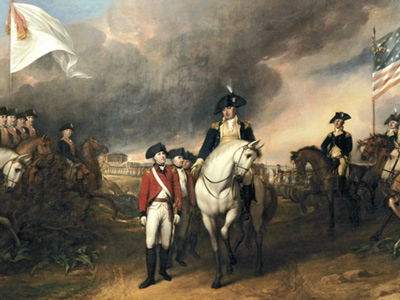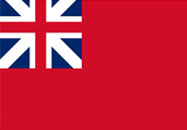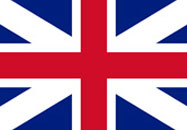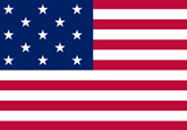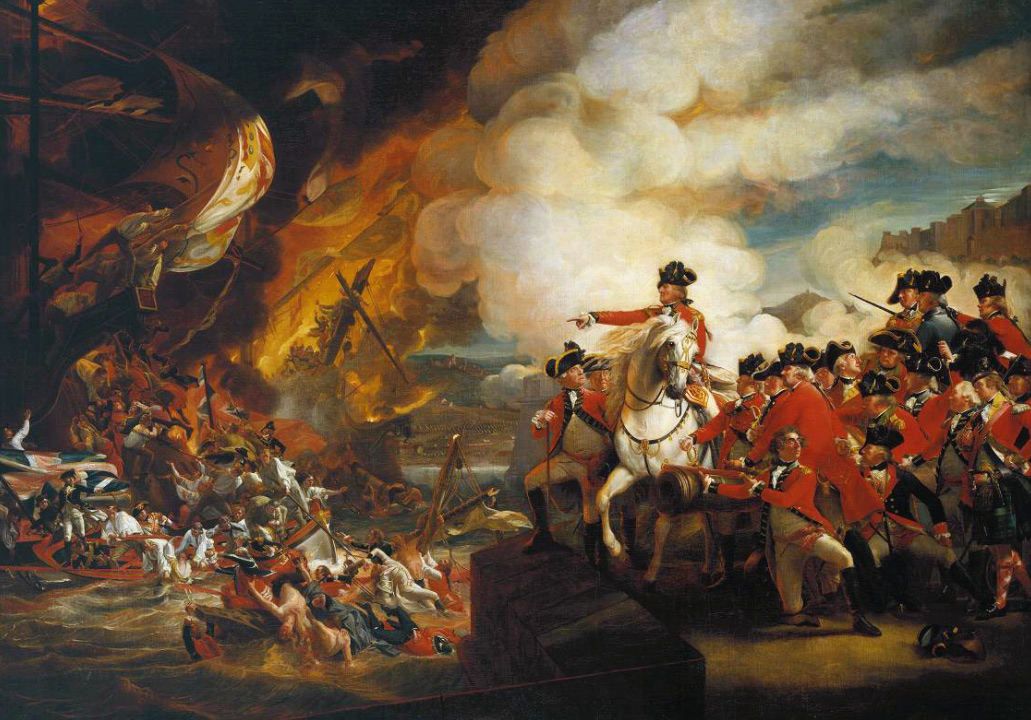American Revolutionary War (1775–1783)
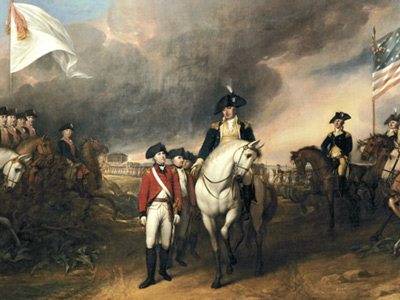
British Northern Strategy Fails (1777–1778)
In December 1776, John Burgoyne returned to London to set strategy with Lord George Germain. Burgoyne's plan was to establish control of the Champlain-George-Hudson route from New York to Quebec, isolating New England. Efforts could then be concentrated on the southern colonies, where it was believed Loyalist support was in abundance. Howe instead argued capturing Philadelphia and defeating Washington was a priority. Germain approved this plan, leaving Howe unable to assist Burgoyne. Washington himself was baffled by Howe's choices. Alden argues Howe was influenced by the idea that, upon success, he would not receive credit, but Burgoyne. Controversy persists over whether Germain approved Burgoyne's plan after reading Howe's, and whether he shared this information with his subordinates. Howe was not given any explicit orders to assist Burgoyne, however, a copy Germain sent to Quebec explicitly stated Howe was to assist Burgoyne's efforts. Another letter stated Howe should launch his campaign against Philadelphia as intended, while allowing enough time to assist Burgoyne. Black argues Germain either left his generals too much latitude, or without a clear direction.
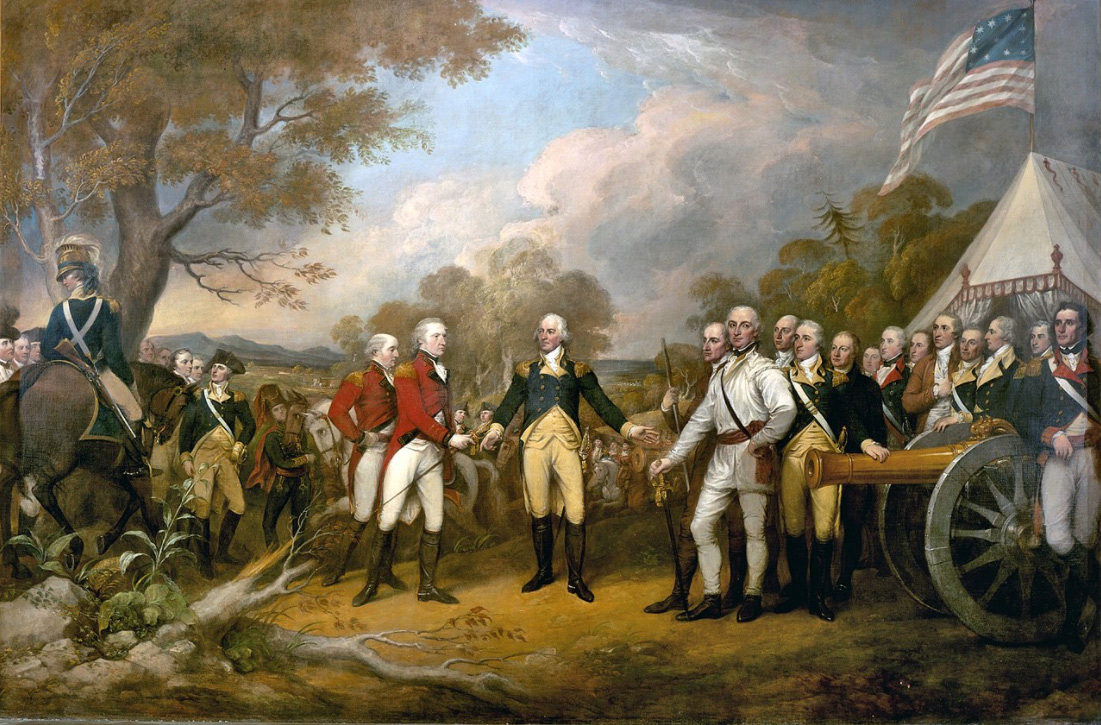
The scene of the surrender of the British General John Burgoyne at Saratoga, on October 17, 1777, was a turning point in the American Revolutionary War that prevented the British from dividing New England from the rest of the colonies. The central figure is the American General Horatio Gates, who refused to take the sword offered by General Burgoyne, and, treating him as a gentleman, invites him into his tent. All of the figures in the scene are portraits of specific officers. Trumbull planned this outdoor scene to contrast with the Declaration of Independence beside it. John Trumbull (1756–1843) was born in Connecticut, the son of the governor. After graduating from Harvard University, he served in the Continental Army under General Washington. He studied painting with Benjamin West in London and focused on history painting. Major figures in the painting (from left to right, beginning with mounted officer): American Captain Seymour of Connecticut (mounted) American Colonel Scammel of New Hampshire (in blue) British Major General William Phillips (British Army officer) (in red) British Lieutenant General John Burgoyne (in red) American Major General Horatio Gates (in blue) American Colonel Daniel Morgan (in white). The dimensions of this oil painting on canvas are 365.76 cm by 548.64 cm (144.00 in by 216.00 in).

The scene of the surrender of the British General John Burgoyne at Saratoga, on October 17, 1777, was a turning point in the American Revolutionary War that prevented the British from dividing New England from the rest of the colonies. The central figure is the American General Horatio Gates, who refused to take the sword offered by General Burgoyne, and, treating him as a gentleman, invites him into his tent. All of the figures in the scene are portraits of specific officers. Trumbull planned this outdoor scene to contrast with the Declaration of Independence beside it. John Trumbull (1756–1843) was born in Connecticut, the son of the governor. After graduating from Harvard University, he served in the Continental Army under General Washington. He studied painting with Benjamin West in London and focused on history painting. Major figures in the painting (from left to right, beginning with mounted officer): American Captain Seymour of Connecticut (mounted) American Colonel Scammel of New Hampshire (in blue) British Major General William Phillips (British Army officer) (in red) British Lieutenant General John Burgoyne (in red) American Major General Horatio Gates (in blue) American Colonel Daniel Morgan (in white). The dimensions of this oil painting on canvas are 365.76 cm by 548.64 cm (144.00 in by 216.00 in).
( Click image to enlarge)
Burgoyne's plan was to lead an army along Lake Champlain, while a strategic diversion advanced along the Mohawk River, and both would rendezvous at Albany. Burgoyne set out on June 14, 1777, quickly capturing Ticonderoga on July 5. The hasty withdrawal of the Continental Army after little resistance outraged the American public. Burgoyne's pursuit ran into stiff resistance at Hubbardton and Fort Anne. Leaving 1,300 men behind as a garrison, Burgoyne continued the advance. Progress was slow; the Americans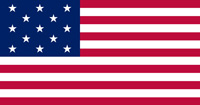 The United States of America (USA), is a country in North America. The American Revolutionary War (April 19, 1775 - September 3, 1783) was the military conflict in which American patriot forces under George Washington's command defeated the British, establishing and securing the independence of the United States. After the Revolution, the United States gained independence, the first nation-state founded on Enlightenment principles of liberal democracy. blocked roads, destroyed bridges, dammed streams and denuded the area of food. Meanwhile, Barry St. Ledger's diversionary column laid siege to Fort Stanwix. St. Ledger withdrew to Quebec on August 22 after his Indian support abandoned him. On August 16, a British foraging expedition was soundly defeated at Bennington, and more than 700 troops were captured. As a result of the defeat, the vast majority of Burgoyne's Indian support abandoned him. Meanwhile, Howe informed Burgoyne he would launch his campaign on Philadelphia as planned, and would be unable to render aid.
The United States of America (USA), is a country in North America. The American Revolutionary War (April 19, 1775 - September 3, 1783) was the military conflict in which American patriot forces under George Washington's command defeated the British, establishing and securing the independence of the United States. After the Revolution, the United States gained independence, the first nation-state founded on Enlightenment principles of liberal democracy. blocked roads, destroyed bridges, dammed streams and denuded the area of food. Meanwhile, Barry St. Ledger's diversionary column laid siege to Fort Stanwix. St. Ledger withdrew to Quebec on August 22 after his Indian support abandoned him. On August 16, a British foraging expedition was soundly defeated at Bennington, and more than 700 troops were captured. As a result of the defeat, the vast majority of Burgoyne's Indian support abandoned him. Meanwhile, Howe informed Burgoyne he would launch his campaign on Philadelphia as planned, and would be unable to render aid.
Having considered his options, Burgoyne decided to continue the advance. On September 19, he attempted to flank the American position, and clashed at Freeman's Farm. The British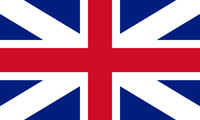 The Kingdom of Great Britain was a sovereign country in Western Europe from 1 May 1707 to the end of 31 December 1800. The state was created by the 1706 Treaty of Union and ratified by the Acts of Union 1707, which united the kingdoms of England (which included Wales) and Scotland to form a single kingdom encompassing the whole island of Great Britain and its outlying islands, with the exception of the Isle of Man and the Channel Islands. won, but at the cost of 600 casualties. Burgoyne then dug in, but suffered a constant haemorrhage of deserters, and critical supplies were running low. Henry Clinton did capture two key forts on October 6 to divert American resources, though he turned back ten days later. Meanwhile, the American army was growing in size daily, swelling to some 15,000 men. On October 7, a British reconnaissance in force against the American lines was repulsed with heavy losses. Burgoyne then withdrew with the Americans in pursuit, and by October 13, he was surrounded. With no hope of relief and supplies exhausted, Burgoyne surrendered on October 17. 6,222 soldiers became prisoners of the Americans. The decisive success spurred France
The Kingdom of Great Britain was a sovereign country in Western Europe from 1 May 1707 to the end of 31 December 1800. The state was created by the 1706 Treaty of Union and ratified by the Acts of Union 1707, which united the kingdoms of England (which included Wales) and Scotland to form a single kingdom encompassing the whole island of Great Britain and its outlying islands, with the exception of the Isle of Man and the Channel Islands. won, but at the cost of 600 casualties. Burgoyne then dug in, but suffered a constant haemorrhage of deserters, and critical supplies were running low. Henry Clinton did capture two key forts on October 6 to divert American resources, though he turned back ten days later. Meanwhile, the American army was growing in size daily, swelling to some 15,000 men. On October 7, a British reconnaissance in force against the American lines was repulsed with heavy losses. Burgoyne then withdrew with the Americans in pursuit, and by October 13, he was surrounded. With no hope of relief and supplies exhausted, Burgoyne surrendered on October 17. 6,222 soldiers became prisoners of the Americans. The decisive success spurred France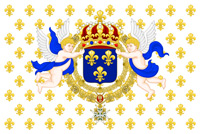 The Kingdom of France is the historiographical name or umbrella term given to various political entities of France in the medieval and early modern period. It was one of the most powerful states in Europe since the High Middle Ages. It was also an early colonial power, with possessions around the world. Colonial conflicts with Great Britain led to the loss of much of its North American holdings by 1763. The Kingdom of France adopted a written constitution in 1791, but the Kingdom was abolished a year later and replaced with the First French Republic. to enter the war as an ally of the United States, securing the final elements needed for victory over Britain, that of foreign assistance.
The Kingdom of France is the historiographical name or umbrella term given to various political entities of France in the medieval and early modern period. It was one of the most powerful states in Europe since the High Middle Ages. It was also an early colonial power, with possessions around the world. Colonial conflicts with Great Britain led to the loss of much of its North American holdings by 1763. The Kingdom of France adopted a written constitution in 1791, but the Kingdom was abolished a year later and replaced with the First French Republic. to enter the war as an ally of the United States, securing the final elements needed for victory over Britain, that of foreign assistance.
Meanwhile, Howe launched his campaign against Washington, though his initial efforts to bring him to battle in June 1777 failed. Howe declined to attack Philadelphia overland via New Jersey, or by sea via the Delaware Bay, even though both options would have enabled him to assist Burgoyne if necessary. Instead, he took his army on a time-consuming route through the Chesapeake Bay, leaving him completely unable to assist Burgoyne. This decision was so difficult to understand, Howe's critics accused him of treason.
Howe outflanked and defeated Washington on September 11, though he failed to follow-up on the victory and destroy his army. A British victory at Willistown left Philadelphia defenceless, and Howe captured the city unopposed on September 26. Howe then moved 9,000 men to Germantown, north of Philadelphia. Washington launched a surprise attack on Howe's garrison on October 4, which was eventually repulsed. Again, Howe did not follow-up on his victory, leaving the American army intact and able to fight. Later, after several days of probing American defences at White Marsh, Howe inexplicably ordered a retreat to Philadelphia, astonishing both sides. Howe ignored the vulnerable American rear, where an attack could have deprived Washington of his baggage and supplies. On December 19, Washington's army entered winter quarters at Valley Forge. Poor conditions and supply problems resulted in the deaths of some 2,500 troops. Howe, only 20 miles (32 km) away, made no effort to attack, which critics observed could have ended the war.
The Continental Army was put through a new training program, supervised by Baron von Steuben, introducing the most modern Prussian methods of drilling. Meanwhile, Howe resigned, and was replaced by Henry Clinton on May 24, 1778. Clinton received orders to abandon Philadelphia and fortify New York following France's entry into the war. On June 18, the British departed Philadelphia, with the reinvigorated Americans in pursuit. The two armies fought at Monmouth Court House on June 28, with the Americans holding the field, greatly boosting morale and confidence. By July, both armies were back in the same positions they had been two years prior.
HISTORY
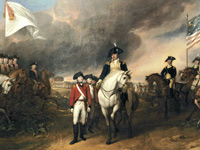
RESOURCES
This article uses material from the Wikipedia article "American Revolutionary War (1775–1783)", which is released under the Creative Commons Attribution-Share-Alike License 3.0.
© Stories Preschool. All Rights Reserved.
